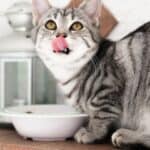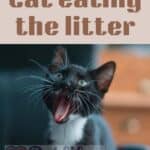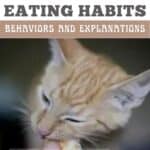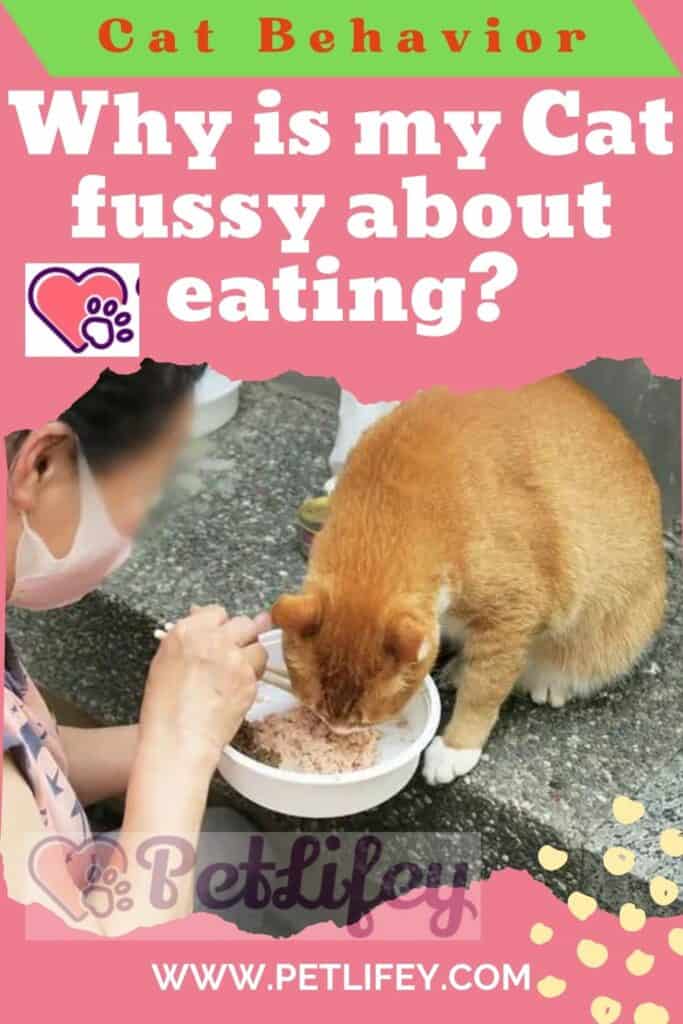
Is our cat fussy about food? It is important to investigate the reasons behind this behavior to understand how to help him.
Cats are often blamed for being picky when it comes to eating. But are we really sure it’s just their whim?
According to recent studies it would be more correct to speak of a selective attitude of cats towards food. Cats have particularly developed bitter taste receptors. This marked sensitivity would have developed during the millenary evolution that led cats to recognize foods that are toxic to them, having mainly bitter connotations, from those that are edible. The squeamishness of the cat would therefore only be the result of an evolutionary process that lasted thousands of years.
Taking into due consideration the feline evolution over time, it is equally true that a behavior of excessive food selection in the cat could be induced, even by us owners. In fact, a lot seems to depend on the eating habits that cats develop from kittens, within the first six months of life.
Those who have been fed a greater variety of foods early on are more likely to accept a new type of food without causing particular problems. Conversely, a cat fed the exact same food repeatedly will understandably develop a preference for it and be more reluctant to propose a change.
How to prevent our cat from becoming too picky
In addition to providing a good variety of foods for our cat right from the start, what else can we do to make our cat less demanding when it comes to eating?
There are some things we should take that could prevent your cat from becoming picky with food.
Here are 6 tips about it:
- Fresh food – it is important that the food in the bowl is always fresh. It would be better for the cat to always finish all the food in the container, avoiding tucking the bowl if there is food in the bottom: the cat may not eat it because it is considered stale and therefore not appetizing. Similarly, cat could refuse to eat the last croquettes of a pack because they are less tasty: in this case the advice is to buy smaller packs and suitable for the needs of the cat.
- Bowls in glass, ceramic and metal – For the environment and for the cat, it is preferable to avoid the use of plastic and to use bowls of other material, large enough to allow the cat to reach the food without stretching the neck too much or without feel uncomfortable while eating.
- Bowl Cleaning – Keep your food and water bowls clean by looking after them at least once a day
- Stable bowl – the bowl should not move while the cat is eating – better have one with a non-stick bottom or place it on a non-slip padded layer.
- Inviting meal – for the cat it is useful to make the meal more appetizing, perhaps by heating it so that it emits a good smell.
- Positive reinforcement – Praising and stroking the cat at mealtimes could lead him to eat more easily, as long as you don’t overdo the praise: Cat doesn’t have to go so far as to feed only in the presence of compliments and cuddles!
Why Does My Cat Stop Eating Suddenly?
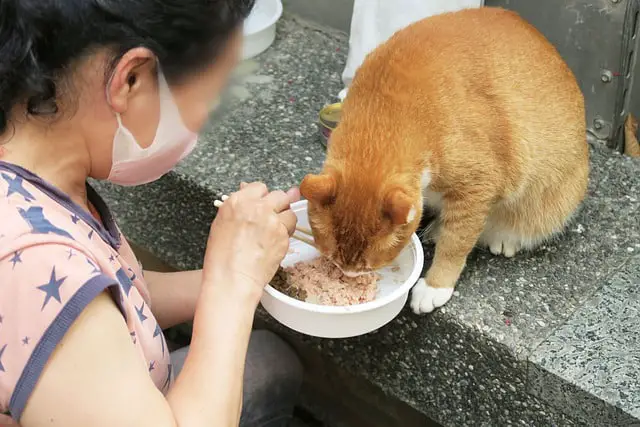
If your cat suddenly becomes picky and stops eating, the first thing to do is contact your vet to make sure there isn’t a health problem behind it. Once this possibility is ruled out, there may be other causes that lead the cat not to eat.
- Sudden changes in diet – the cat may take badly the introduction of new foods in its usual diet. It is advisable to change his food diet gradually, introducing the new food little by little, initially as an accompaniment to the usual meal and gradually in increasing quantities over the days (with a simultaneous reduction of the old one). Eventually the cat should only be able to eat the newly introduced food.
- Stress – Stress and anxiety can cause a feline to lack appetite. In this case it is obviously important to determine the source to eliminate it and allow the cat to return to normal eating.
- Environmental or routine changes – The cat can stop eating also due to changes that change habits, such as a different arrangement of the furniture in the house, the arrival of a new member in the family, a meal planning at different times of the day. It is important to evaluate the consequences of these changes in our cat’s life.
- Seasonal changes – There are times when cats eat less, such as in summer. It may therefore be appropriate to change the quantities and types of food depending on the season.
- Problems with the food bowl – There could be an incorrect positioning of the food bowl, placed by us masters in a place considered unsafe by our cat, because it may be too close to something that scares him, thus making him lose his appetite. It is also good that the bowl used by cat to eat is well separated from the litter tray and the water bowl, since in the nature and in the mind of the cat the three actions for feeding, drinking and resting are clearly distinct. Why on earth confuse it by putting everything in the same confined space?
- Too many medicines – Several types of medicines can make the cat lose appetite: in this case it is advisable to have a medical discussion with the veterinarian


